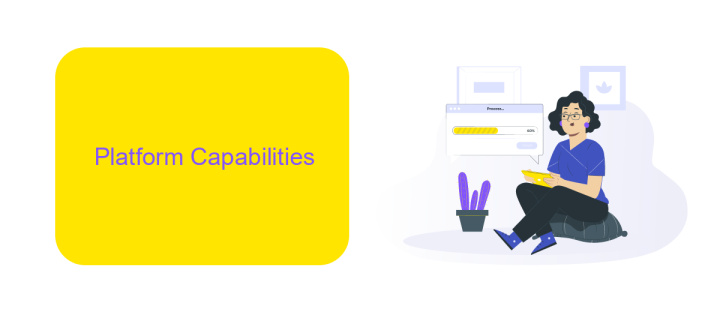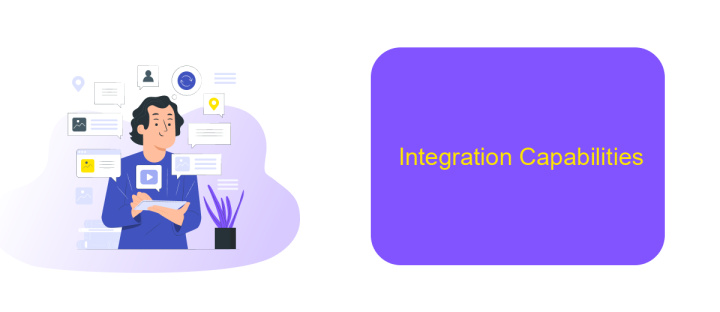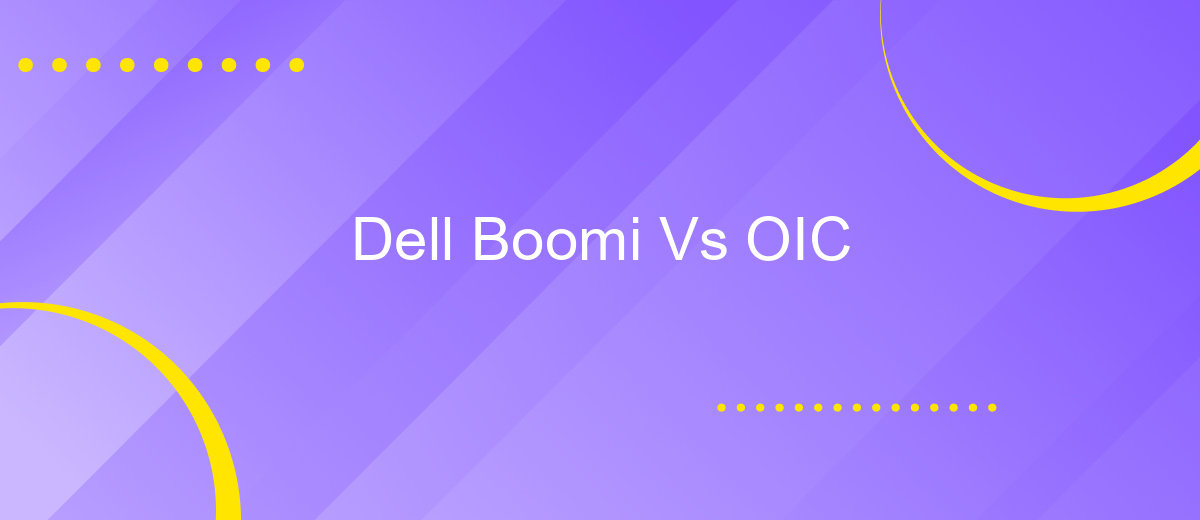Dell Boomi Vs OIC
When it comes to integrating diverse systems and applications, Dell Boomi and Oracle Integration Cloud (OIC) stand out as leading solutions. Both platforms offer robust features for seamless connectivity and data management, but they cater to different needs and preferences. This article delves into a comparative analysis of Dell Boomi and OIC, helping you determine which is best suited for your business requirements.
Introduction
In today's rapidly evolving digital landscape, businesses are increasingly relying on integration platforms to connect their diverse systems and streamline operations. Dell Boomi and Oracle Integration Cloud (OIC) are two leading solutions in this domain, each offering unique features and capabilities to meet the demands of modern enterprises.
- Dell Boomi: Known for its ease of use and extensive pre-built connectors, Dell Boomi allows organizations to quickly integrate applications, data, and processes.
- Oracle Integration Cloud (OIC): OIC provides a comprehensive suite of integration tools, including application integration, process automation, and API management, designed to support complex enterprise needs.
Choosing the right integration platform is crucial for business efficiency and growth. Factors such as scalability, ease of implementation, and cost should be carefully considered. Additionally, services like ApiX-Drive can further enhance integration efforts by offering seamless automation and connectivity between various applications, ensuring a smooth and efficient workflow.
Platform Capabilities

Dell Boomi offers a comprehensive platform that excels in integration, API management, and workflow automation. Its low-code environment allows businesses to streamline processes with minimal coding effort. The platform supports a wide range of connectors and pre-built templates, facilitating quicker deployments and easier management of integrations across various systems. Dell Boomi’s unified approach ensures seamless data flow and consistency, making it a reliable choice for enterprises looking to enhance their digital ecosystems.
On the other hand, Oracle Integration Cloud (OIC) provides a robust suite of tools for application integration, process automation, and analytics. OIC’s intuitive interface and pre-built adapters simplify the integration of Oracle and third-party applications. It also offers advanced features like machine learning-driven recommendations for improved operational efficiency. For businesses seeking to further optimize their integration processes, services like ApiX-Drive can be integrated to automate data transfers between numerous applications, ensuring a more cohesive and efficient workflow.
Pricing and Licensing

When comparing Dell Boomi and Oracle Integration Cloud (OIC) in terms of pricing and licensing, it's important to consider several factors. Both platforms offer subscription-based models, but their pricing structures can vary significantly based on the specific needs of your organization. Dell Boomi typically offers a more flexible pricing model, allowing businesses to scale their usage based on the number of integrations and connectors they require.
- Dell Boomi: Offers tiered pricing based on the number of connections and data volume. Additional costs may apply for advanced features and premium support.
- Oracle Integration Cloud: Pricing is generally based on the number of messages processed and the number of integration instances. Additional costs can be incurred for extra storage, advanced analytics, and enterprise support.
Both Dell Boomi and OIC provide robust integration capabilities, but the choice between them may also depend on other factors such as ease of use, compatibility with existing systems, and specific business requirements. Services like ApiX-Drive can further streamline the integration process by offering user-friendly tools and automated workflows, potentially reducing overall costs and implementation time.
Integration Capabilities

When comparing Dell Boomi and Oracle Integration Cloud (OIC), it is essential to consider their integration capabilities. Both platforms offer robust tools for connecting various applications, data sources, and services, but they do so in distinct ways that cater to different business needs.
Dell Boomi excels in providing a low-code environment, making it accessible for users with varying technical expertise. Its visual interface allows for rapid development and deployment of integrations, which can be crucial for businesses needing quick turnaround times. OIC, on the other hand, offers powerful pre-built adapters and templates that simplify the integration of Oracle and non-Oracle applications, ensuring seamless data flow across the enterprise.
- Low-code development environment (Dell Boomi)
- Pre-built adapters and templates (OIC)
- Visual interface for rapid deployment (Dell Boomi)
- Seamless integration with Oracle applications (OIC)
Additionally, services like ApiX-Drive can complement these platforms by providing automated data transfer solutions between various systems without extensive coding. This can further enhance the integration capabilities of both Dell Boomi and OIC, making it easier for businesses to maintain efficient and reliable data connections.
Conclusion
In conclusion, both Dell Boomi and Oracle Integration Cloud (OIC) offer robust solutions for integration needs. Dell Boomi stands out for its ease of use, rapid deployment capabilities, and strong community support. It is particularly well-suited for small to medium-sized enterprises looking for an intuitive platform to manage their integrations. On the other hand, OIC excels with its comprehensive suite of tools and deeper integration with Oracle products, making it an ideal choice for larger organizations already invested in the Oracle ecosystem.
When choosing between these platforms, it's crucial to consider your organization's specific requirements, existing infrastructure, and future growth plans. Additionally, leveraging third-party services like ApiX-Drive can further enhance your integration strategy by providing seamless connectivity and automation across various applications. Ultimately, the right choice will depend on your unique business needs and how each platform aligns with your integration goals.


FAQ
What are the main differences between Dell Boomi and Oracle Integration Cloud (OIC)?
Which platform is more user-friendly for beginners?
How does scalability compare between Dell Boomi and OIC?
What are some common use cases for Dell Boomi and OIC?
Are there any third-party services that can help with implementing and automating integrations on these platforms?
Routine tasks take a lot of time from employees? Do they burn out, do not have enough working day for the main duties and important things? Do you understand that the only way out of this situation in modern realities is automation? Try Apix-Drive for free and make sure that the online connector in 5 minutes of setting up integration will remove a significant part of the routine from your life and free up time for you and your employees.

